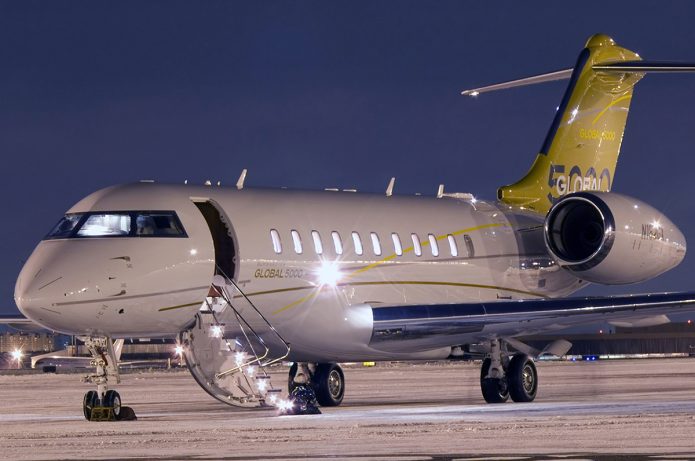
(Photo: Aleksandr Markin)
When you think about who benefits from the Republican tax bill the Senate just passed, think of the people who own and ride in private luxury jets.
We know that the benefits of tax bill are skewed to the very wealthy and a handful of global corporations. Republicans have been rushing this bill fully aware that the more people learn, the less they will like it.
As Edward Kleinbard, the esteemed tax economist and former head of the non-partisan Joint Committee on Taxation, observed: “We are squandering a giant sum of money” in this tax bill. “It’s not aimed at growth. It is not aimed at the middle class. It is at every turn carefully engineered to deliver a kiss to the donor class.”
Kleinbard’s donor class aren’t people that write $100 checks to candidates. He’s talking about billionaires who donate to a wide range of campaign organizations, some with their identity obscured, to move a larger agenda.
These people don’t even fly in first class. They’re the high flyers that fly in private jets.
Our new report, High Flyers 2017, examines the outsized influence private jet owners play in ensuring their massive tax subsidies. The private jet lobby, our report shows, spent more than $56 million over the last decade to secure more than $1 billion in tax breaks. Not a bad return on their investment.
The tax scam that just passed the Senate and will now be merged with the House version in a conference committee expands these carve outs and special provisions for private jets. Meanwhile, the Republican budget plan, moving right behind the tax bill, nearly doubles the passenger facility fees that commercial passengers will pay on their tickets.
A family of four, taking a trip with a layover, will pay an additional $32 per trip. Meanwhile, the already heavily subsidized private jet passengers will pay an extra zero dollars.
Private jet passengers and owners don’t come close to contributing to the upkeep of our air traffic control system or our airports.
Per flight, private jets generate about 2 percent of the taxes and fees of commercial flights on an identical flight. Consider just one example: A privately owned jet flying from Nashville to Philadelphia would pay nearly 98 percent less than an identical commercial flight.
Put differently, commercial airlines pay 40 times more in taxes than private jets to take the exact same flight.
Meanwhile, they’ve fended off almost all of the post-9/11 security rules that commercial passengers must face.
While commercial passengers stand in their socks and watch their grandmother get frisked by a stranger, the private jet flyers have a voluntary security regime. They drive right up to their private aircraft and unload their rifles and golf clubs directly into the passenger compartment. No body screen. No three-ounce bottles. No security door separating passengers from pilots. This is just one more example of the ways our deeply unequal modern society prevents the super-wealthy from experiencing — and thus perhaps being concerned about — the everyday indignities faced by those without means.
In 2008, the Transportation Security Administration (TSA) was advocating for new regulations on private jets. At the time, Homeland Security Secretary Michael Chertoff had voiced concerns about “terrorists” using private jets and proposed expanded background checks on passengers and tightening security for small airports.
But the private jet lobby mobilized its powerful network of wealthy and powerful customers, pilots and companies. They pressed regulators, and by 2010 the TSA had backed off plans to increase security of private jets.
Commercial airline passengers should not have to subsidize private jets. Period.
We should end the private jet tax carve-out and require private jets to pay the same taxes and fees that commercial air travelers cover.
The Trump tax plan will make this problem worse, not better.
